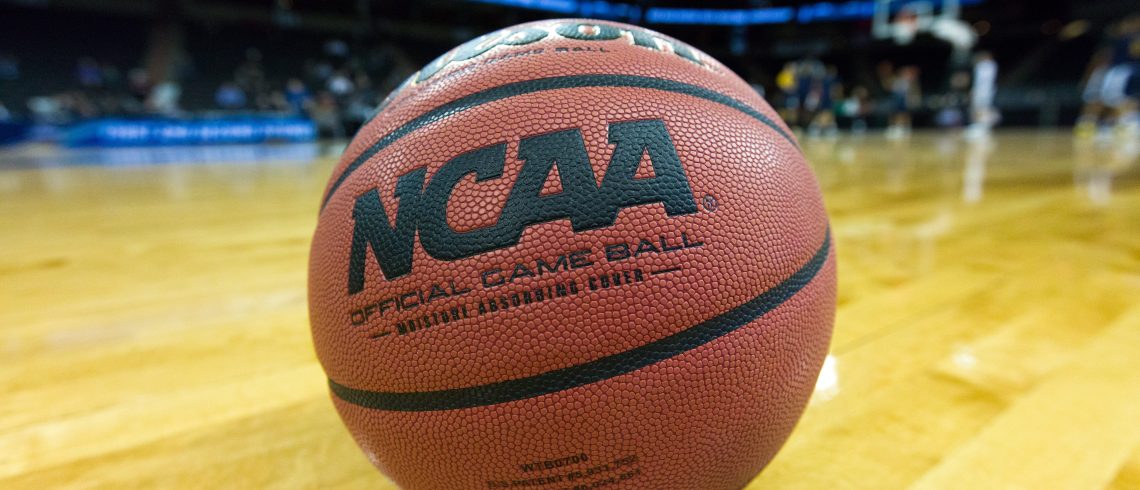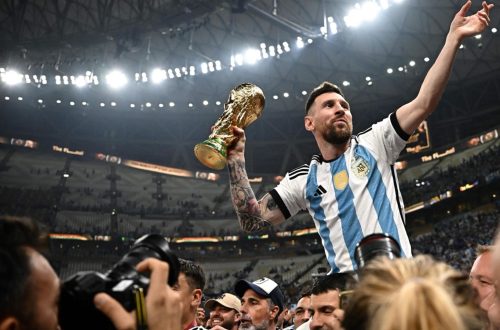By: Jordan Baum
In June 2025, the NCAA DI Council introduced a proposal that would change its sports betting rules to permit student-athletes to bet on professional sports.[1] The proposal’s aim is to refocus the NCAA’s enforcement efforts on college sports betting and behaviors that directly impact game integrity.[2]
Evolution of NCAA Gambling Policies
The NCAA has demonstrated a willingness to amend its gambling policies in order to adapt to the widespread legalization of sports gambling. In 2023, the NCAA amended its blanket policy of a permanent loss of eligibility for sports gambling infractions.[3] The amendment created a tier-based penalty system with a primary focus of maintaining the integrity of collegiate sports.[4]
The two harshest tiers of penalties are reserved for student-athletes who (1) have personally bet on or influenced the outcome of their own school’s games, or (2) have bet on their own sport at other schools.[5] Athletes found to be influencing one’s own games face a potential permanent loss of collegiate eligibility.[6] Those found betting on one’s own sport at another school results in a potential loss of 50% of one season of eligibility.[7] The lowest tier of penalties is given to student-athletes who commit any other sports gambling violations, including wagering on professional sports.[8] The severity of these penalties is based on the cumulative value of the wagers placed by the student-athlete.[9] A student-athlete may lose up “30% [] of a season of eligibility, plus rules and prevention education” if found to have wagered more than $8000 cumulatively.[10]
Now, the NCAA Division I Council introduced a proposal that would allow student-athletes and staff to legally gamble on professional sports.[11] If adopted in October, the change would allow the NCAA to focus its sports gambling enforcement efforts on maintaining the integrity of the Association’s competitions.[12] This amendment would only eliminate the current lowest, value-based tier of penalties.[13] As such, penalties for betting on or influencing collegiate sporting events would remain the same.[14]
The NCAA is attempting to keep its policies in line with the most recent state and federal regulations. However, there remains another daunting challenge to address amid the commercialization of betting. Thousands, if not millions, of dollars are legally exchanged based on the outcome of college games or players’ performances. So, how can the NCAA protect its competitors from angry bet losers in the world of social media?
Turning Reactive Amendments into Proactive Measures
The NCAA cannot create state or federal sports gambling policies, but it can use its platform to proactively urge lawmakers towards change. In March 2024, NCAA President Charlie Baker released a statement stating that he was actively working with officials across the country to ban college prop bets from all betting markets.[15]
In February 2025, less than one year after Baker’s statement, Congressman Michael Baumgartner introduced the Providing Responsible Oversight and Transparency and Ensuring Collegiate Trust (PROTECT) Student Athletes Act.[16] The legislation is aimed at protecting “student athletes by prohibiting prop bets related to their performance during intercollegiate sporting events.”[17] The proposed legislation currently resides with the House Committee on Energy and Commerce.[18]
Taking it one step further, the NCAA announced a partnership with Venmo on August 26 aimed at combatting abuse and harassment of student-athletes.[19] The partnership includes “a dedicated hotline for athletes to report abuse and harassment, education on account security, and increased monitoring.”[20] Additionally, Venmo’s security team will monitor trends on social media during games and important plays.[21]
Athletes are subjected to abuse and harassment across various social media platforms, and for reasons not always related to sports gambling. Even so, this partnership shows that the NCAA is taking offensive steps to protect the well-being of its competitors.
Conclusion
The NCAA will never be entirely in control of nationwide sports gambling policies, as it remains beholden to the decisions of policymakers. However, the DI Council’s proposal, and the NCAA’s partnership with Venmo, indicate a renewed focus on accommodating current-day sports gambling policies. Moreover, these actions help the NCAA maintain both the integrity of its competitions and the well-being of its competitors.
It seems likely that in the coming months the NCAA will continue to pursue proactive measures aimed at protecting its student-athletes from abuse and harassment by bettors. Additionally, the NCAA will need to continue to monitor both state and federal sports gambling policies to ensure that it can quickly adapt its own regulations.
While far from complete, it appears that the next step in the NCAA’s sports gambling evolution is well underway.
[1] Meghan Durham Wright, DI Council introduces proposal to allow betting on pro sports, NCAA (June 24, 2025, at 19:48 MT), https://www.ncaa.org/ [https://perma.cc/HV3S-RAE3].
[2] Id.
[3] David Purdum, NCAA updates punishments for athletes who violate gambling rules, ESPN (June 28, 2025, at 15:53 ET), https://www.espn.com/ [https://perma.cc/A2X4-C8DY].
[4] Id.
[5] Id.
[6] Id.
[7] Id.
[8] Id.
[9] Meghan Durham Wright, DI approves changes to reinstatement guidelines for sports wagering violations, ESPN (June 28, 2025, at 14:30 MT), https://www.ncaa.org/ [https://perma.cc/UD69-RB8N].
[10] Id.
[11] Wright, supra note 1.
[12] Id.
[13] Id.
[14] Id.
[15] NCAA News (@NCAA_PR), X (Mar. 27, 2024, at 6:22 MT), https://x.com/ [https://perma.cc/27J2-FCLT].
[16] Press Release, Michael Baumgartner, Congressman (WA-05), Baumgartner Introduces PROTECT Student Athletes Act to Safeguard Student Athletes from Exploitative Prop Bets (Feb. 26, 2025) (on file with author).
[17] Id.
[18] Providing Responsible Oversight and Transparency and Ensuring Collegiate Trust (PROTECT) Student Athletes Act, H.R. 1552, 119th Cong. (2025).
[19] David Purdum, NCAA, Venmo partner to combat harassment of college athletes, ESPN (June 28, 2025, at 12:56 MT), https://www.espn.co.uk/ [https://perma.cc/7AHQ-37FY].
[20] Id.
[21] Id.





